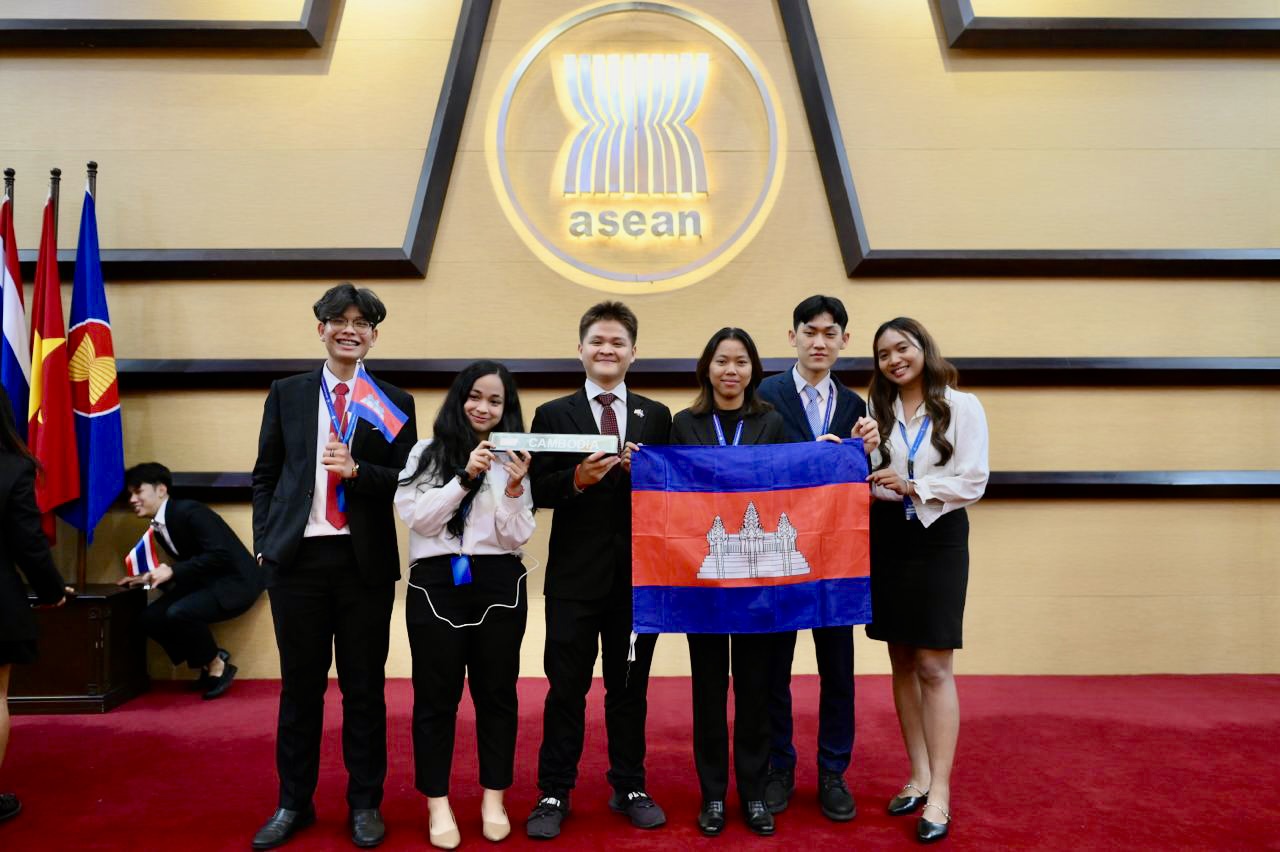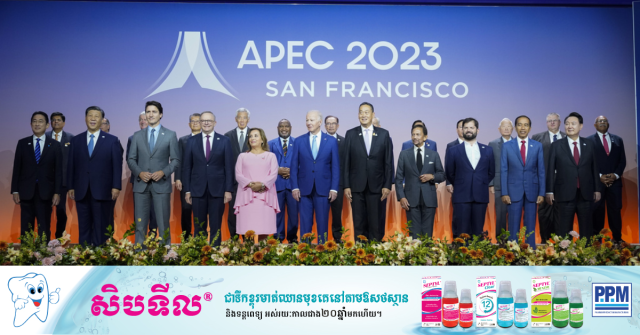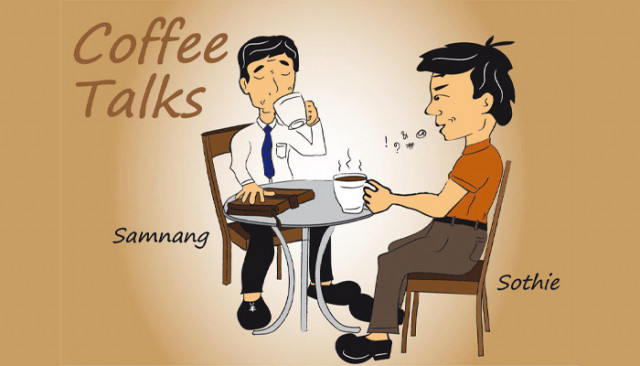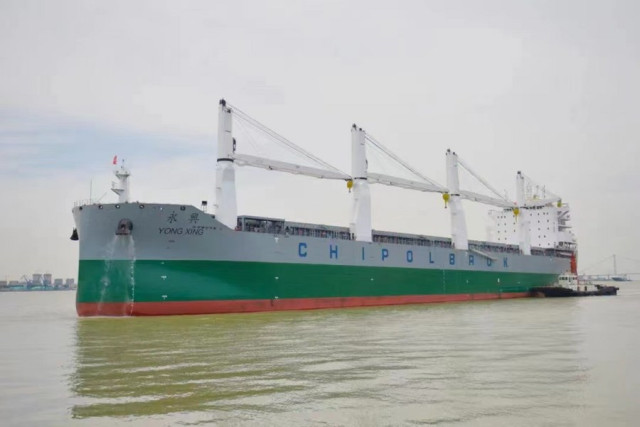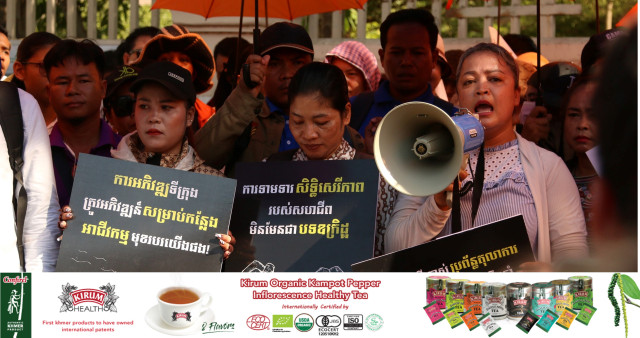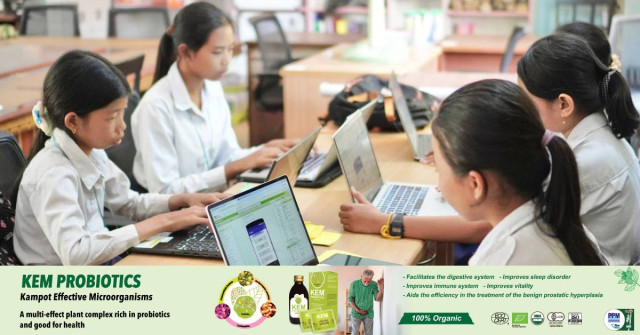Young Learn from ASEAN Mock-UP Meetings
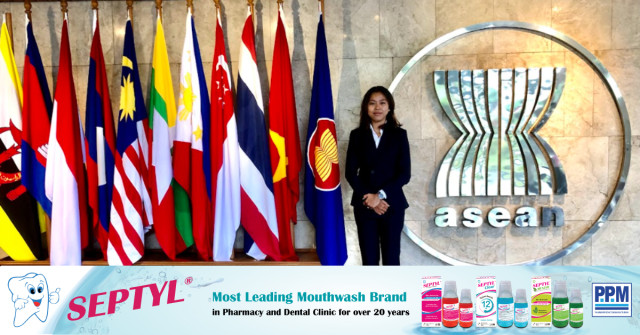
- By Rin Ousa
- December 9, 2023 8:55 AM
PHNOM PENH – Regardless of their academic major and background, young people understand a lot about ASEAN, Kin Keolakena says.
Keolakena is a senior student majoring in international relations at Paragon International University. She has taken part in model United Nations simulations and ASEAN meetings throughout her academic study. Recently, she was selected as a Cambodian delegate to attend the ASEAN Foundation Model ASEAN Meeting Plus Japan in Jakarta, Indonesia. She spoke of her experiences of the programs.
Rin Ousa: The year 2023 marks the 50th year of ASEAN and Japan friendship, so could you please share your perspective on these countries' diplomatic ties?
Kin Keolakena: ASEAN and Japan have been working closely together for 50 years for peace, stability and prosperity in the region. ASEAN and Japan have mutual understanding and trust. We have heartfelt relations.
In times of crisis, such as the Asian financial crisis, the Indian Ocean tsunami, the Great East Japan earthquake and COVID-19, we stayed together, addressed the issues and fought against them.
Along with the golden friendship that ASEAN and Japan have, it also creates golden opportunities for both sides in terms of economy, politics and security, cultures, and people-to-people exchange via initiative programs and funds.
Thus, in my perspective, to keep and move forward with the 50th Year of ASEAN-Japan friendship and cooperation is to keep mutual understanding, trust and trade. As an ASEAN young person, I am also looking forward to seeing more exchange programs between ASEAN and Japanese young people.
Rin Ousa: Since it was your first time traveling to Indonesia, what was your first impression of that country?
Kin Keolakena: I was impressed by its fascinating infrastructure. Skyscrapers, modern buildings, wide roads and numerous bridges connect neighborhoods. In addition to infrastructure, I immersed myself in Indonesian culture and lifestyle.
First, motorbikes are the main means of transport for many Southeast Asian countries but I noticed that cars have become more dominant in Indonesia. It reflects Indonesia’s growth.
Another notable difference is less street food and small businesses. Unlike Indonesia, it is very common to see street vendors selling snacks almost everywhere in Cambodia.
One thing that surprised me the most is the popularity of public transport. I saw long queues at bus stops. This shows that public transport is convenient for many Indonesians, which is a positive for urban development.
However, one concerning issue is air pollution. The city is plagued by smog, which sometimes caused difficulty breathing even at night for me. This could cause serious health concerns for residents and visitors, thus I think sustainable and environmentally friendly development strategies should be strictly adhered to.
Overall, my impressions were both positive and negative. While the country's infrastructure is impressive, there are still challenges to be addressed, such as air pollution.
Rin Ousa: What were the main activities of the event? And did you find it challenging?
Kin Keolakena: It was challenging for me since this was my first time joining the actual model ASEAN meeting in Indonesia. The flow and structure seem like the actual ones because we had a senior official meeting, a ministerial meeting, an ASEAN coordinating council, and a head of government meeting, which is quite different from other model ASEAN meetings that I had been at.
Although I am a Cambodian youth, I was selected to represent Myanmar as a senior official in the ASEAN Socio-Cultural Community (ASCC). I was not really interested in discussing the topic in ASCC at first.
Since I had never done it before, I wanted to challenge myself and give myself a try. It was challenging for me since I represent Myanmar, so I had to put more effort into researching that country. Talking about our meeting time, I also found it challenging as I had to get up very early and get back to the hotel at night time. On the last day of the program, the meeting ended at 10 pm.
Rin Ousa: What things did you learn from the program?
Kin Keolakena: Since 72 young people from ASEAN and Japan took part, I learnt how to work as a team. My team consisted of Filipinos, Indonesians, Vietnamese, Malaysians and Japanese. We had such a lively discussion.
Another incredible thing I learnt is the flows and procedures of ASEAN meetings. In my university, we only have model United Nations simulation. By going there, I could observe and learn how ASEAN meetings work.
We went there not only to learn, but also to share and promote our cultures. During the program, they also had sometimes for cultural exchange so that we could show them our traditional clothes, snacks and souvenirs such as krama.
Rin Ousa: What do you think about the abilities of the delegates?
Kin Keolakena: I think their abilities are very good, and what surprised me the most is some of the youths joining this program are not from international relations or law backgrounds. Some study public health, software engineering, dentistry and so on.
However, their knowledge is very impressive. Their understanding about politics, economy, and ASEAN surprised me. In addition, their debating skills, negotiation skills, research and public speaking skills made the meeting lively and engaging.
It is not their first time joining this ASEAN meeting, some of them have joined various international competitions, meetings and other exchange programs. I was very amazed at how active they were to represent their own countries.
Thus, it is quite hard to compare who is better than whom. Personally, it was such an astonishing opportunity for ASEAN youths to exchange ideas, cultures and knowledge.
Rin Ousa: Why do you think students should have a chance to join meetings internationally like you did? What is the importance of participating in these events?
Kin Keolakena: I really encourage young people to participate in international programs and meetings because four years as an undergraduate student is quite short. By joining, they can see the bigger world, broaden their knowledge and expand their horizons.
I think it is the best opportunity to measure your knowledge with other international young people as well. Once the opportunity comes, don’t hesitate to try, take a plunge to apply. No matter how many times you fail, you will get selected one day. Give yourself a try.






